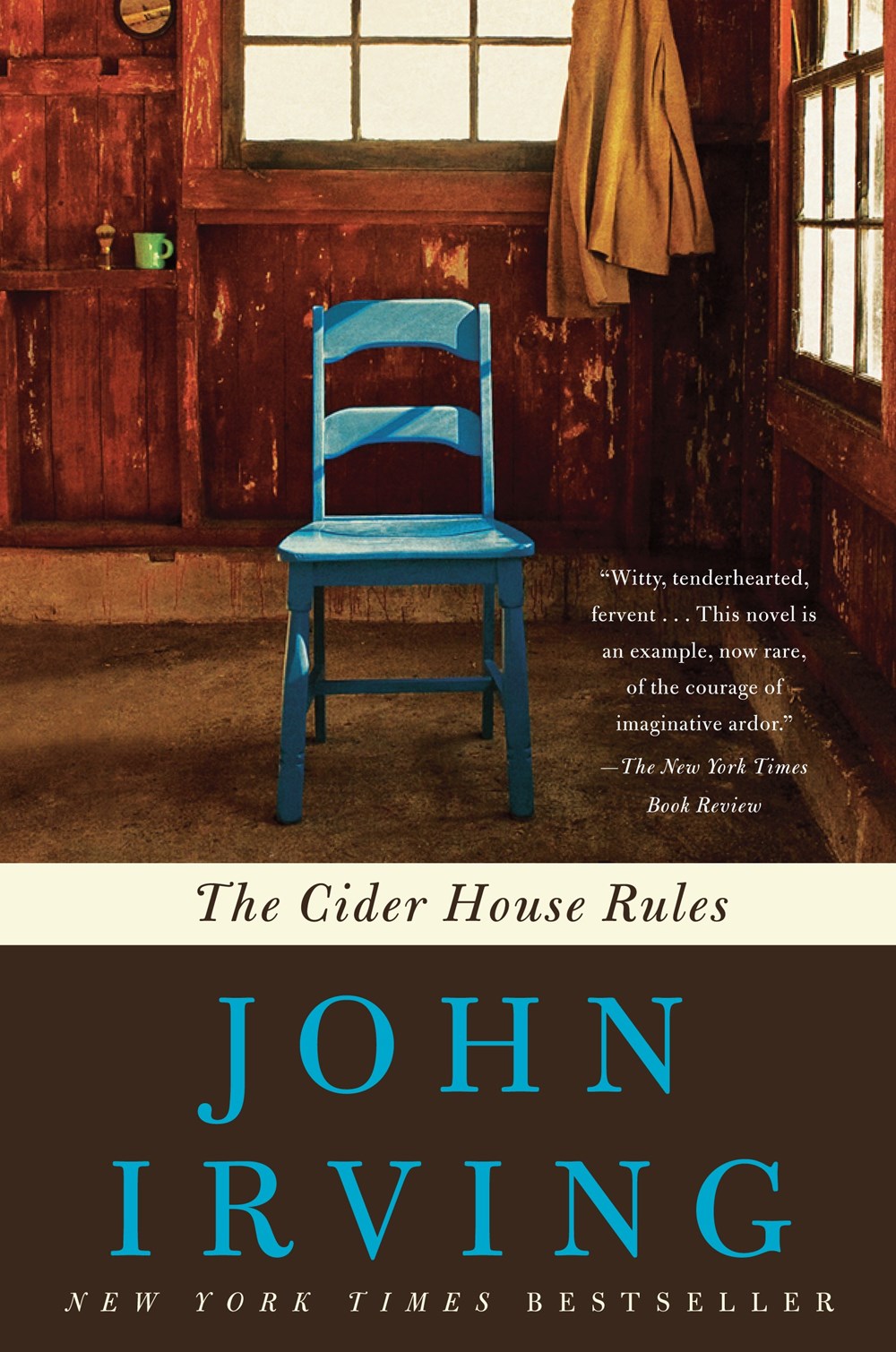1
/
of
1
The Cider House Rules : A Novel
The Cider House Rules : A Novel
John Irving
June 23, 1997
Regular price
$18.00 USD
Regular price
Sale price
$18.00 USD
Unit price
/
per
Couldn't load pickup availability
“The Cider House Rules is filled with people to love and to feel for. . . . The characters in John Irving’s novel break all the rules, and yet they remain noble and free-spirited.”—The Houston Post
First published in 1985, The Cider House Rules is set in rural Maine in the first half of the twentieth century. The novel tells the story of Dr. Wilbur Larch—saint and obstetrician, founder and director of the orphanage in the town of St. Cloud’s, ether addict and abortionist. This is also the story of Dr. Larch’s favorite orphan, Homer Wells, who is never adopted.
Praise for The Cider House Rules
“ [Irving] is among the very best storytellers at work today. At the base of Irving’s own moral concerns is a rare and lasting regard for human kindness.”—The Philadelphia Inquirer
“ Superb in scope and originality, a novel as good as one could hope to find from any author, anywhere, anytime. Engrossing, moving, thoroughly satisfying.”—Joseph Heller
“ An old-fashioned, big-hearted novel . . . with its epic yearning caught in the nineteenth century, somewhere between Trollope and Twain.”—Boston Sunday Globe
First published in 1985, The Cider House Rules is set in rural Maine in the first half of the twentieth century. The novel tells the story of Dr. Wilbur Larch—saint and obstetrician, founder and director of the orphanage in the town of St. Cloud’s, ether addict and abortionist. This is also the story of Dr. Larch’s favorite orphan, Homer Wells, who is never adopted.
Praise for The Cider House Rules
“ [Irving] is among the very best storytellers at work today. At the base of Irving’s own moral concerns is a rare and lasting regard for human kindness.”—The Philadelphia Inquirer
“ Superb in scope and originality, a novel as good as one could hope to find from any author, anywhere, anytime. Engrossing, moving, thoroughly satisfying.”—Joseph Heller
“ An old-fashioned, big-hearted novel . . . with its epic yearning caught in the nineteenth century, somewhere between Trollope and Twain.”—Boston Sunday Globe
Share


